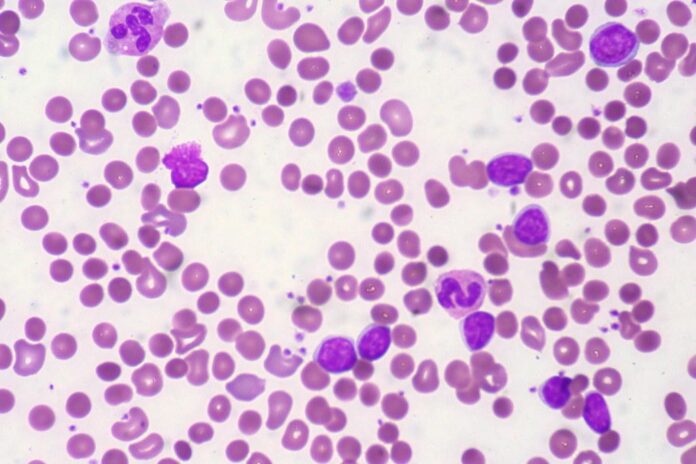
Understanding Autoimmune Anemia: Causes, Symptoms, and Treatment Options
Autoimmune anemia is a condition that occurs when the body’s immune system mistakenly attacks and destroys red blood cells, leading to a decrease in the number of healthy red blood cells in the body. This can result in various symptoms such as fatigue, shortness of breath, and pale skin. Understanding the causes, symptoms, and treatment options for autoimmune anemia is crucial for effective management and improved quality of life for those affected by this condition.
Causes of Autoimmune Anemia
The exact cause of autoimmune anemia is not fully understood, but it is believed to be a result of the body’s immune system mistakenly identifying its own red blood cells as foreign invaders and attacking them. This can lead to a decrease in the number of healthy red blood cells and a subsequent decrease in the oxygen-carrying capacity of the blood. The immune system can be triggered by various factors, including genetics, infections, medications, and environmental factors.
Genetic factors may play a role in the development of autoimmune anemia, as certain genes are believed to increase the risk of developing this condition. Infections, such as viral or bacterial infections, can also trigger an autoimmune response in the body, leading to the destruction of red blood cells. Medications, particularly those used to treat other autoimmune conditions, such as rheumatoid arthritis or lupus, may also lead to the development of autoimmune anemia. Environmental factors, such as exposure to toxins or chemicals, may also contribute to the development of this condition.
Symptoms of Autoimmune Anemia
The symptoms of autoimmune anemia can vary depending on the severity of the condition and the individual affected. Common symptoms include fatigue, weakness, pale skin, shortness of breath, dizziness, and an increased heart rate. These symptoms occur due to the decreased oxygen-carrying capacity of the blood, leading to a lack of oxygen being delivered to the body’s tissues and organs. In severe cases, autoimmune anemia can lead to complications such as an enlarged heart, heart failure, or even death.
It is important to note that the symptoms of autoimmune anemia can be similar to those of other medical conditions, so it is crucial to consult a healthcare professional for an accurate diagnosis. A complete blood count (CBC) and other blood tests may be conducted to assess the number and quality of red blood cells in the body, as well as to detect any underlying autoimmune or other medical conditions.
Treatment Options for Autoimmune Anemia
The treatment of autoimmune anemia aims to increase the number of healthy red blood cells in the body, improve the symptoms, and prevent complications. Treatment options may include:
1. Immunomodulatory medications: These medications help to suppress the immune system’s attack on healthy red blood cells. Common immunomodulatory medications include corticosteroids, such as prednisone, which can help to reduce inflammation and suppress the immune response. Other immunomodulatory medications, such as rituximab or azathioprine, may also be used to target specific aspects of the immune system.
2. Blood transfusions: In severe cases of autoimmune anemia, blood transfusions may be required to increase the number of healthy red blood cells in the body and improve symptoms. Blood transfusions may be a temporary treatment option until other medications or therapies can effectively manage the condition.
3. Immunoglobulin therapy: This therapy involves the administration of immunoglobulins, which are antibodies that can help to modulate the immune system’s response and reduce the destruction of red blood cells. Immunoglobulin therapy may be used in individuals who do not respond to other treatment options or who have severe symptoms.
4. Iron supplementation: Iron is essential for the production of healthy red blood cells, so iron supplementation may be necessary in individuals with autoimmune anemia, particularly if they have low iron levels or are at risk of developing iron-deficiency anemia.
5. Lifestyle modifications: It is important for individuals with autoimmune anemia to maintain a healthy lifestyle, including a balanced diet, regular exercise, and stress management, to support overall health and well-being.
In addition to these treatment options, individuals with autoimmune anemia may also benefit from regular monitoring of their red blood cell counts and other blood parameters, as well as regular follow-up with a healthcare professional to assess the effectiveness of treatment and address any potential complications.
Conclusion
Autoimmune anemia is a condition that can significantly impact an individual’s quality of life due to the symptoms it causes and the potential complications it may lead to. Understanding the causes, symptoms, and treatment options for autoimmune anemia is essential for effective management and improved outcomes for those affected by this condition. By working closely with healthcare professionals and following personalized treatment plans, individuals with autoimmune anemia can effectively manage their symptoms, reduce the risk of complications, and improve their overall health and well-being.

















